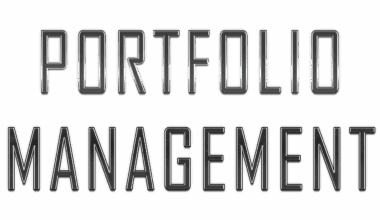Trade Finance Documentation: Essential Papers You Need to Know
Understanding trade finance documentation is crucial for successful international transactions. Various essential papers facilitate trust and minimize risks. Key documents include the letter of credit, pro forma invoice, and bill of lading. The letter of credit serves as a guarantee from the bank, ensuring timely payments. A pro forma invoice details the goods and pricing, permitting accurate financial planning. The bill of lading acts as a transportation receipt, confirming shipment. Each document plays a pivotal role in protecting all parties involved. Additionally, correct documentation enhances compliance with customs regulations and international laws, ensuring a smooth process. Errors in these papers can lead to delays and financial losses. It is vital to maintain accuracy and clarity throughout. Involving legal and financial experts can be beneficial to avoid discrepancies. Many businesses rely heavily on these documents to secure financing and streamline operations. Familiarity with these critical papers enables effective communication with banks and shipping companies. Proper documentation ultimately fosters trust and strengthens relationships in the international trading landscape. Consequently, companies can navigate complexities and achieve their trade finance objectives effectively.
Letter of Credit
The letter of credit is a cornerstone of trade finance documentation, providing security for both exporters and importers. It acts as a guarantee from the bank, indicating that payment will be made upon presentation of required documents. Banks assess creditworthiness before issuing this instrument, reducing risk significantly. Various types include sight letters of credit, which provide immediate payment, and time letters that delay payment for a specified period. It is essential to understand the specific terms, conditions, and expiry dates associated with the letter of credit. The terms dictate what documents are required, ensuring compliance with the seller’s and buyer’s agreements. Any ambiguity can lead to complications or disputes. Exporters are encouraged to read and comprehend their obligations fully. Common issues arise from discrepancies between shipping documents and the terms outlined in the letter. Additionally, the involvement of intermediaries, such as freight forwarders, may complicate matters. Consultation with trade finance specialists can streamline the process. Proper management of the letter of credit enhances relationships and reduces the potential for conflict in international trade settings, making it indispensable for successful operations.
Next, the pro forma invoice plays an integral part as a preliminary bill. It provides sellers with a detailed valuation of the goods scheduled for shipment, informing buyers of necessary payment amounts. The document includes essential details, such as product descriptions, quantities, prices, payment terms, and delivery schedules. Buyers use this invoice to secure financing and review terms before confirming orders. A clear pro forma invoice promotes transparency between trading partners, reducing chances of misunderstandings. Moreover, it serves as a basis for the letter of credit application, establishing clear expectations for both parties. Having accurate and well-organized invoices can significantly expedite the financing process. Inaccuracies can lead to rejection of loan applications or delays in shipments. Therefore, sellers should ensure that all necessary details are precise and accurately reflected. Both parties must keep copies of transactions, facilitating prompt resolutions of queries arising from misunderstandings. Regularly updating invoicing practices in alignment with current regulations is crucial. By emphasizing the importance of this document, businesses can mitigate issues and enhance efficiency in managing their financial obligations in trade.
Bill of Lading
The bill of lading represents a vital document, serving as a receipt for goods shipped and a contract of carriage. Issued by the carrier, it confirms that the goods have been loaded and are en route to their destination. This document is key for clearing customs and verifying ownership. Importantly, a bill of lading typically includes participant details, item descriptions, shipment terms, and any special instructions. There are different types, including straight bills, which are non-transferable, and negotiable bills that can be transferred to others. A clear understanding of these types is crucial, as they impact how ownership is transferred during the shipping process. Missing or incorrect information can delay shipments and complicate customs clearance. Moreover, disputes often arise over discrepancies between the original bill of lading and shipping documents. Collaborating closely with shipping agents helps mitigate these risks. Adopting best practices in bill of lading management supports smoother transactions. Increased digitalization enables automated record-keeping, minimizing human error. Ultimately, mastering the billing process enhances operational transparency, fostering better partnerships in trade.
Other significant trade finance documents include packing lists, insurance certificates, and commercial invoices. Each document plays a unique role, contributing to the efficiency of the trade process. Packing lists offer a detailed account of the items within a shipment, assisting customs officers in verifying contents. They typically outline item descriptions, quantities, and packaging types. Insurance certificates provide proof of coverage, ensuring the protection of goods during transit. Such documentation is essential for minimizing financial risks associated with physical assets. Additionally, the commercial invoice is a formal request for payment. It includes key details, such as total costs and payment terms, establishing the financial aspect of the sale. These documents combined create a robust framework, establishing clarity and accountability in transactions. Ensuring the accuracy and completeness of each document is paramount. For international operations, it is recommended to work with specialists knowledgeable about local regulations. Knowledge of these essential documents increases operational efficiency and fosters better collaboration between businesses. Emphasizing diligent documentation practices ultimately strengthens a company’s credibility in the international market.
Conclusion
In conclusion, familiarizing oneself with trade finance documentation is crucial for successful international trade engagements. The letter of credit, pro forma invoice, bill of lading, and other necessary documents form the backbone of trade finance operations. Each document serves specific purposes, promoting transparency, security, and efficiency in transactions. By investing time in understanding these papers, businesses can reduce trade-related risks and facilitate smoother processes. Additionally, collaborating with legal and financial experts may enhance overall operational insights. A proactive approach to documentation can lead to significant improvements in managing trade finance activities, minimizing errors, and maximizing the potential for successful international relationships. Furthermore, leveraging digital tools to manage and store documents creates efficiencies that save time and resources. As global trade continues to evolve, remaining informed on changes in regulations and practices will be vital. Thus, consistent reviews of documentation processes reflect well on a business’s professionalism and commitment to compliance. By staying ahead in document management, companies can navigate trade finance challenges effectively and maintain strong relationships with trading partners, ultimately achieving their objectives successfully.
To effectively manage trade finance documentation, businesses must cultivate an ongoing learning mindset. Continuous education through workshops, webinars, and certifications can enhance understanding of complex trade procedures. Establishing systems for reviewing documentation practices regularly is essential. Companies may look into automated solutions that simplify document handling and storage. These systems drive efficiency and accuracy while minimizing risks associated with human error. Networking with industry peers provides invaluable insights, as firsthand experiences shape knowledge. Participating in trade finance forums or organizations also brings benefits, fostering collaboration and shared knowledge among members. Such communal learning enables businesses to adapt swiftly to evolving trade landscapes. Furthermore, mentoring new employees on the relevance of documentation practices is essential for creating a knowledgeable workforce. A culture of compliance and accuracy helps bolster a company’s reputation within international trading circles. Ultimately, investment in both personnel development and technology will yield dividends for businesses engaging in trade finance. As businesses prioritize effective documentation methods, they pave the way for smoother transactions, increased trust, and strengthened partnerships in the global marketplace.
To effectively manage trade finance documentation, businesses must cultivate an ongoing learning mindset. Continuous education through workshops, webinars, and certifications can enhance understanding of complex trade procedures. Establishing systems for reviewing documentation practices regularly is essential. Companies may look into automated solutions that simplify document handling and storage. These systems drive efficiency and accuracy while minimizing risks associated with human error. Networking with industry peers provides invaluable insights, as firsthand experiences shape knowledge. Participating in trade finance forums or organizations also brings benefits, fostering collaboration and shared knowledge among members. Such communal learning enables businesses to adapt swiftly to evolving trade landscapes. Furthermore, mentoring new employees on the relevance of documentation practices is essential for creating a knowledgeable workforce. A culture of compliance and accuracy helps bolster a company’s reputation within international trading circles. Ultimately, investment in both personnel development and technology will yield dividends for businesses engaging in trade finance. As businesses prioritize effective documentation methods, they pave the way for smoother transactions, increased trust, and strengthened partnerships in the global marketplace.


